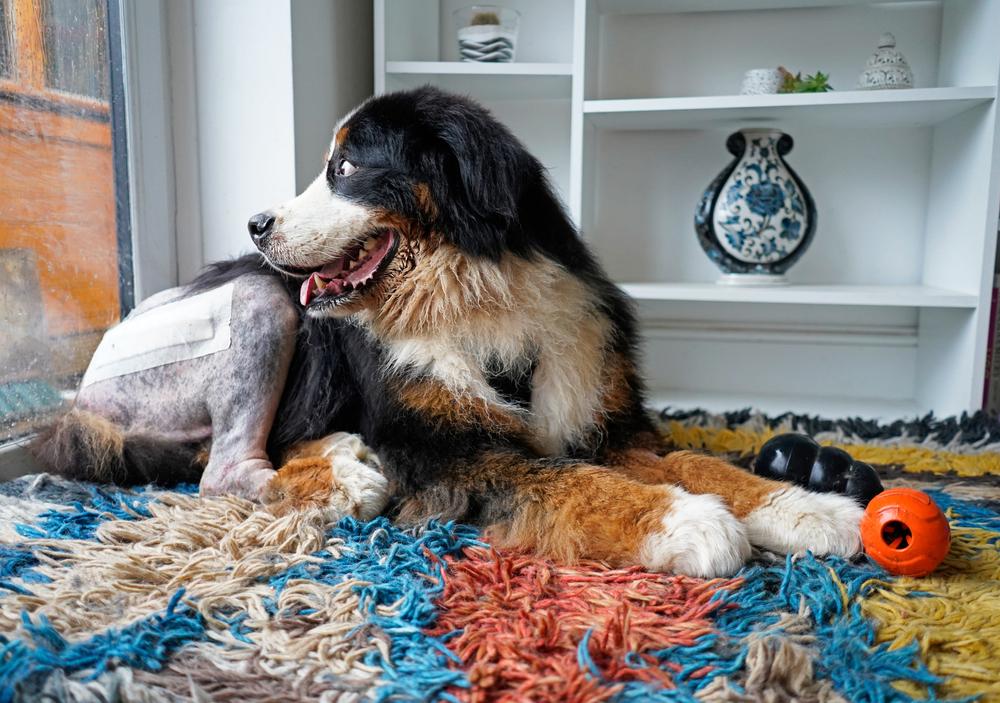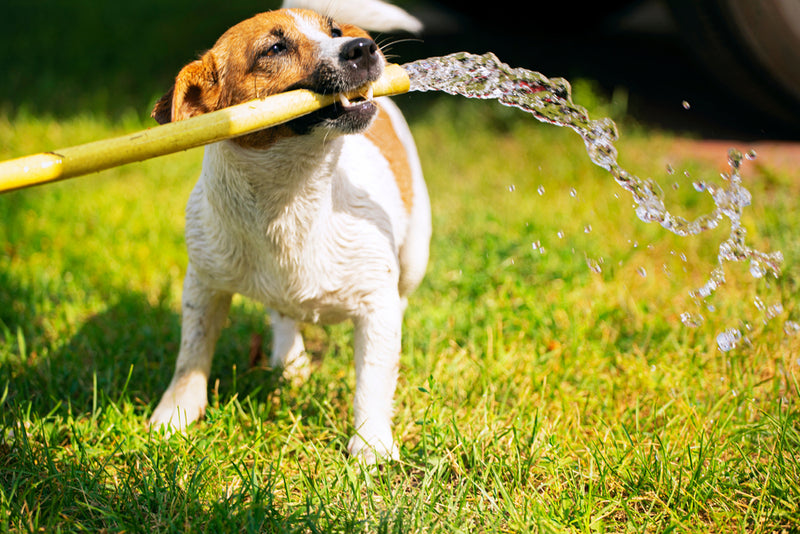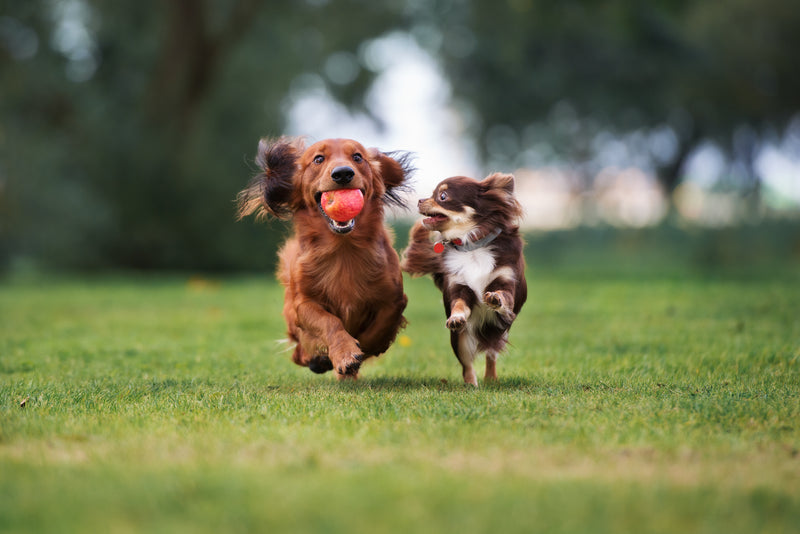
How to Support Your Dog with Hip & Joint Issues
With proper care, many dogs that have hip, joint, or muscular issues still live long and happy lives. Larger dogs tend to have a genetic condition that affects their hips, and can eventually cause devastating health and mobility problems. While some owners may notice subtle gait differences in young dogs and even puppies, the problem generally grows serious as dogs age.
Sadly, there's no natural remedy that can cure this genetic condition or symptoms. Eventually, these conditions can cripple otherwise-healthy canines if it's not treated. Prudent pet parents can take steps to reduce damage, relieve pain, and delay symptoms. For severe cases, vets might recommend surgery, but many pets can thrive with non-invasive medical or natural therapy.
As with most potential health conditions, it's best to recognize and treat the problem as early as possible. Find out what causes hip and joint issues, how to start seeing the symptoms, and how to help possibly minimize its effects.
WHAT DO HIP & JOINT ISSUES LOOK LIKE IN MY DOG?
The American Kennel Association mentioned such large breeds as Labrador Retrievers, Great Danes, and Saint Bernards as particularly at risk to inherit hip dysplasia. Less commonly, it affects smaller dogs.
Larger dogs tend to have a genetic condition that causes an abnormally shaped hip socket. Because of this, the joint will wear down faster because it's not aligned with the other limbs. Some vets compare this to the way that unaligned tires will wear out more rapidly on cars.
Some symptoms of hip & joint issues may include:
- A swaying gait
- Decreased activity or reluctance to perform certain activities
- Pain, stiffness, or lameness, especially in older dogs
Of course, veterinarians can confirm a more specific diagnosis of what your dog might be suffering from. They physically manipulate the dog's joint to check for abnormal hip movement or ask to do an X-ray.
WHAT CAN PET PARENTS DO TO HELP?
In potentially severe cases, vets may suggest surgery to correct the deformation. Sometimes, vets or owners may decide not to operate because of the dog's age, poor qualification as a surgical candidate, or the expense of such a procedure.
Proper care of the pet throughout its life may remediate the condition, so the dog never suffers the most serious symptoms. For instance:
- Diet and weight: Mostly, ensure the dog enjoys a healthy diet and maintains a healthy weight. Less weight means less stress upon joints. Specially formulated food for large-breed puppies also ensures that they don't grow too fast.
- Appropriate exercise: Even though a pet's healthy lifestyle should include appropriate exercise, pets with this condition should avoid excess agility or jumping activities. Even though young dogs may appear to enjoy robust activities, putting too much stress upon joints will catch up with them later.
- Orthopedic dog beds: Lots of manufacturers craft dog beds that relieve joint pressure. In particular, consider investing in one of these for an older or severely affected pet.
The International Hip Dysplasia Organization, an organization for people with this condition, mentioned that natural supplements with glucosamine and chondroitin have actually been demonstrated to work better in dogs than humans. CBD oil also shows promise as an anti-inflammatory and relaxing treatment.
When pain severely impacts mobility and quality of life, vets may also suggest anti-inflammatory medication. You can speak with your vet to see which medications may be best to help your dog.
HOW LONG CAN DOGS WITH HIP DYSPLASIA LIVE?
As dogs age, hip dysplasia can cause pain and impair mobility. At the same time, a proper lifestyle and available treatment options can provide relief and even delay the onset of symptoms. Many dogs who inherit this condition can comfortably and happily enjoy a typical lifespan for their breed.
Related Products
Here at Moe's, we want to help our furry friends get through their day without having to worry about not being able to run and play. That's why we created our Movin & Groovin Bites - so that every dog, no matter their age, can play like a puppy.
Sources:
https://hipdysplasia.org/is-there-a-natural-cures-for-hip-dysplasia/
https://www.akc.org/expert-advice/health/hip-dysplasia-in-dogs/




